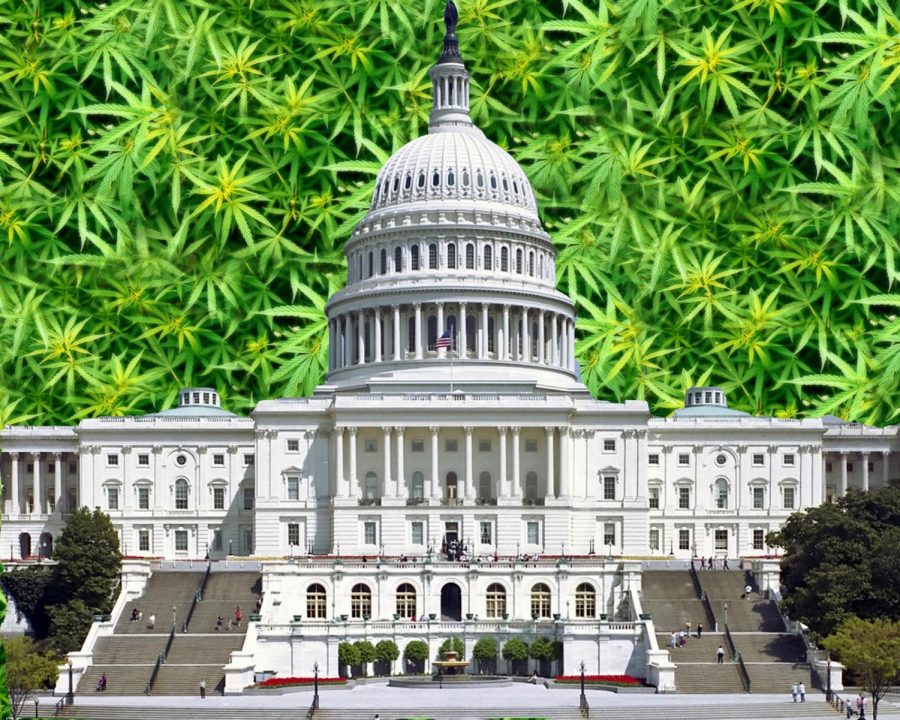Majority of U.S. cannabis companies not included in $2 trillion coronavirus stimulus package
Cannabis companies may not have been the hardest hit by the COVID-19 pandemic, but they also won’t be granted federal funding from the $2 trillion stimulus package — the Coronavirus Aid, Relief and Economic Security Act (CARES).
As the economy nosedives in the United States, members of Congress and President Donald Trump have announced that American workers and small businesses will receive essential relief. Unfortunately, state-legal cannabis businesses will not be eligible for a payout.
As per the details of the $2 trillion stimulus package, $1,200 will be offered to families that earn $75,000 or less in adjusted gross income, whereas married couples earning up to $150,000 can receive $2,400. For each child living inside qualifying households, an additional $500 will be included in the payouts. Unemployment insurance totaling $250 billion will also be included in the CARES package.
The Tax Policy Center estimates that 90 percent of Americans will qualify to receive funding from the CARES Act, which also establishes a $367 billion federally-guaranteed loan program targeted towards small business owners. However, the loans won’t be available if employees are laid off.
Although cannabis companies aren’t reveling in the news, there is a good chance that they will qualify to receive payroll tax credits. Then again, this may not be sufficient, considering the fact that – despite exclusion from the stimulus package – cannabis companies must cover extended sick pay out of their own pocket.
Direct and indirect medical cannabis businesses have been left out of coronavirus stimulus package
The rollout of the COVID19 federal funding program occured on April 3. To the dismay of cannabis companies, the U.S. Small Business Administration released regulations a day prior that said “direct” and “indirect” businesses in the legal weed industry would be forbidden from receiving loans. What this means is that ancillary cannabis businesses – defined as a company that “derived any of its gross revenue for the previous year” from sales to direct cannabis companies – will not gain financial relief.
Founding partner of Denver-based Vicente Sederberg law firm, Josh Kappel, says that the decision to neglect cannabis companies is a “major blow” to the industry. He’s not the only one who isn’t pleased with the Senate’s approval of the measure, which passed with a 96-0 vote at the end of March.
“In my opinion, it is just ludicrous,” said Washington-based certified public accountant and cannabis tax specialist, Dean Guske. “The purpose of the loans is to keep people employed. To penalize cannabis companies and the employees who work for them is wrong and unfair.”
On the other hand, hope prevails for ancillary businesses that do not deal directly with cannabis companies; so long as they dont defy state or local laws, they should be able to rule a successful application. Its advisable for ancillary business owners to consult with legal experts in order to ascertain whether or not they’d be permitted economic relief.
Lack of banking services creates problem for cannabis businesses seeking financial relief
Although ancillary businesses do stand a chance at receiving a slice of the $2 trillion stimulus package, funding is not guaranteed. Why? Because there is a clear divide between banking services and cannabis-related businesses, with most financial institutions being reluctant to serve companies that are associated with the federally-illegal plant. Business owners operating in this gray area are being advised to contact their accountants for guidance.
In summary, the CARES act will require all employers – inclusive of cannabis companies – to pay at least two weeks of sick leave to employees who must take a leave of absence in order to care for family members or themselves. Tax credits may prove useful for cannabis companies that are required to offer extended sick pay. Moreover, cannabis and ancillary businesses might be able to benefit from a provision that delays payment of Social Security taxes throughout 2021 and 2022.
In regards to the SBA Economic Injury Disaster Loan program, cannabis and most ancillary cannabis companies will not be eligible to receive low-interest loans. However, some ancillary cannabis businesses will be eligible to receive funds as part of the Paycheck Protection Program; the funds will cover eight weeks of payroll for employee-retention purposes. Since these loans will be issued directly between the lender and the applicant, ancillary business owners are recommended to consult with their attorney and/or bank.
A number of cannabis industry groups and Democrats will continue to push for inclusion in the CARES Act.








